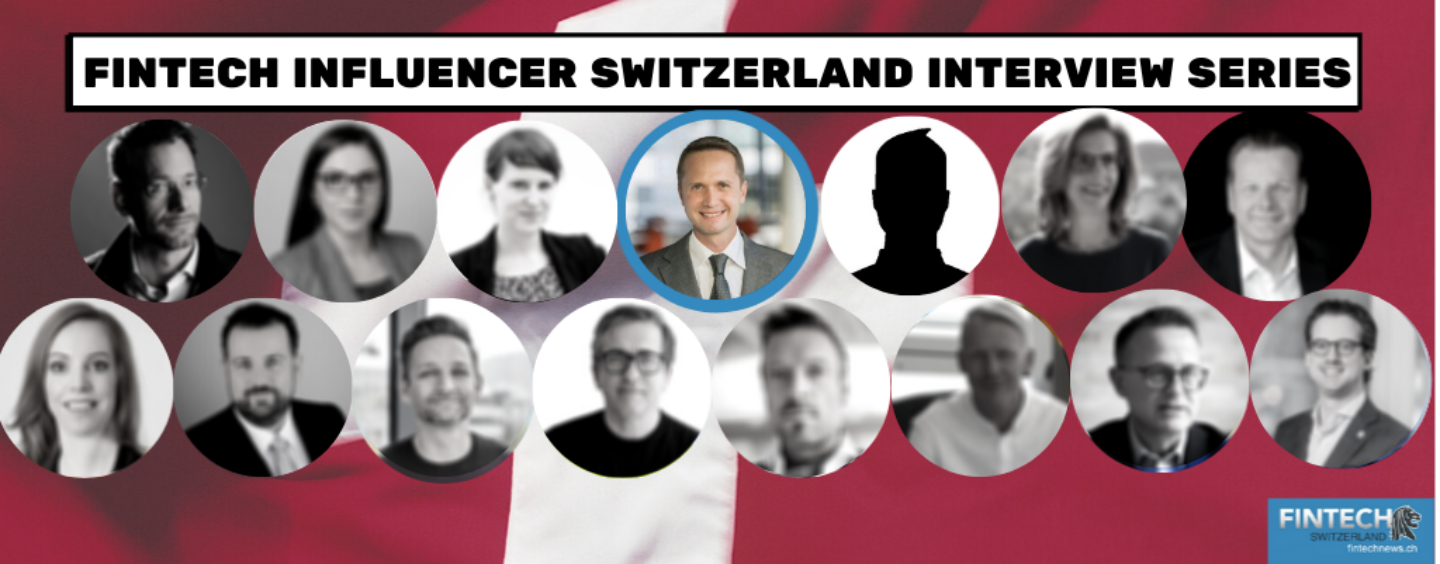
Ecosystem Influencer Interview: 7 Questions to Michael Lewrick
by Fintechnews Switzerland July 3, 2020In May 2020, Fintechnews.ch launched the Fintech Influencer Switzerland Interview series, which presents at least once a week a short interview we have conducted with a well-known, longtime Swiss Fintech Influencer to get his or her views on some of the industry’s most urging issues and hottest trends.
In one of our last interviews we speak with Michael Lewrick book author of “The Design Thinking Playbook” and “Live from Crypto Valley“. He will speak also about his newest book related to “Business Ecosystem Design”.
Hi Michael, what has changed for you personally during this pandemic?
I’d say everything! From the established routines to the way meetings and workshops are run. In my daily work, space and interaction with others is an important element. Especially if you are working fast and iterative it is an advantage to have the teams close and physically together. Currently these interactions have shifted to the virtual space. Experience shows that many discussions and co-creation elements can be carried out well in virtual meetings, even if more preparation and planning is needed. Radical collaboration, which happens ad hoc and uses the momentum, is currently less common or usually only possible with well-rehearsed teams. It is important to adapt to the new situation as a team and to see the whole situation as an opportunity to accelerate or prioritize existing activities.
Do you think COVID-19 is the digital accelerator that the industry has been missing so far?
Covid-19 is definitely an accelerator for the digital transformation. Customer behavior and customer needs have changed massively. Currently, structures are adapting to this new situation. There will be no turning back in many areas, as the new normality will shape the coming years. But that does not mean that we will only have digital interactions in the future. The desire for personal and trustworthy contacts remains.
We will increasingly see hybrid models that provide the Optichannel for interaction to the customer. In addition, topics such as pension provision, security and (financial and mental) well-being are currently coming to the fore, whereby customers do not necessarily want to buy products, but rather a solid and convincing value proposition. The new needs can usually not be served by one market participant and in the future there will be new business ecosystems that link products, innovation and data, which together open up a unique value proposition for the customer.
What is your current focus?
My current focus is on the design of such business ecosystems. I see a growing interest of market players to become active in this field, especially banks and insurance companies are at the forefront. Either with own initiatives or with the motivation to get involved in a particular business ecosystem. I am currently working on a new book that shows and explains how business ecosystems can be designed. The mindset to design a business ecosystem needs a new way of thinking, which allows companies to open up to the outside world, to create transparency about capabilities and values, and finally to take on new market roles in new or existing ecosystems.
What kind of paradigm shift might be required in designing business ecosystems?
The two biggest paradigm shifts lie in the way money is earned, i.e. in the business model, and how exponential growth can be realized. I observe that decision-makers are currently still clinging too strongly to the known business models instead of allowing major changes in how to do business in the future. Companies that are already further in the digital transformation have already internalized many of these new ways of thinking and working, such as being customer-led or working iteratively on solutions. But business ecosystem design needs more, it has to allow symbiosis, coevolution and co-creation between the actors involved in such a system. It also needs new profiles in terms of business ecosystem leadership and a shift from “command and control” to “initiate & orchestrate”.
What are the most relevant enabler technologies to create or participate in business ecosystems?
The respective technology components and capabilities must either be built-up or provided by other actors in a business ecosystem. Without APIs and data analytics, it will be difficult to connect and innovate data-driven in the future. Many business ecosystems generate valuable data that helps to understand customers better and expand the value proposition accordingly. In some cases, it makes sense to implement new ecosystem initiatives as a “greenfield approach” using the latest technology.
Legacy systems and rigid structures often make it difficult to successfully manage an ecosystem play from the core. Robotics and automation is often used for simple functions in such systems, more complex processes require artificial intelligence, machine and deep learning approaches. In the next decade, more game-changing technologies will help to accelerate this process faster than ever before. Blockchain will remain relevant for the appropriate cases, especially in the realization of decentralized systems.
What is your advice to Fintechs and traditional players?
Always start your business ecosystem considerations from the customer. Start with the design of the business ecosystem on the basis of a unique value proposition, which has been created with Design Thinking and found validation in a first Minimum Viable Product (MVP) or offering . Technical feasibility is of great importance throughout the design cycle, along with desirability and viability, but always start with desirability. It also requires openness and collaboration from the beginning. The era of centralized marketplaces is currently being increasingly replaced by ecosystem approaches.
Do you have example of well-designed ecosystems in the financial industry?
Most of the successful ecosystem initiatives are in Asia. The market is in many areas more advanced than in Europe. The best known examples in the area of payment are Alipay and WeChat Pay. They have established dominant roles through their ecosystems. Today, almost 90% of the transactions of these two cashless pay options are made by Alipay and WeChat Pay in China. In Europe, we see N26 with initiatives that allow exponential growth.
In the insurance sector, for example, we see initiatives by Helvetia Insurance Group in co-evolution with Moneypark to tackle everything related to “home”. Many financial service providers are currently seeking for ecosystems plays related to themes like “Home”, “Well-being” and “Mobility”. Some focus on enterprise customers and SMEs as well as a target segment in Switzerland.
Swiss Fintech Influencer Michael Lewrick:

Michael Lewric
Michael Lewrick is a passionate author and speaker on innovation, digital transformation and business ecosystems. He is the lead author of the international bestseller “The Design Thinking Playbook“. In his book “Live from Crypto Valley” he established the concept of the “Minimum Viable Ecosystem” (MVE) in the fast and agile realization of blockchain and crypto projects. His latest book “Business Ecosystem Design” will be published in German at the end of 2020. The English version will arrive at booksellers in spring 2021. Michael lives in Zurich and lectures data driven innovations, design thinking and business ecosystem design at various universities. He also leads the Innovation Labs of a Big 4 from the swiss office in Zurich.





